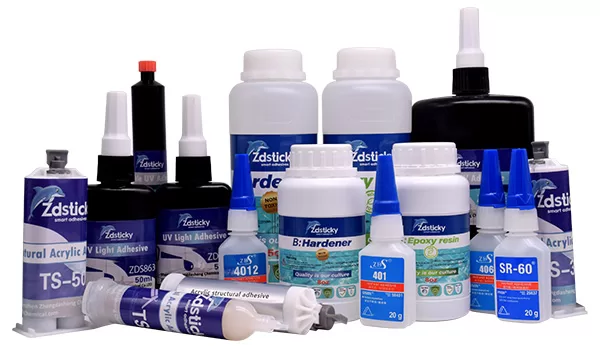Cement glue is a game-changer in the world of adhesives, offering unparalleled strength and versatility. Whether you’re patching up a crack in your concrete wall, repairing outdoor tiles, or crafting creative DIY projects, cement glue provides a reliable and enduring solution. In this comprehensive guide, we’ll explore every detail about cement glue, from its applications and benefits to how it compares with other adhesives, ensuring you’re equipped with the knowledge to make the right choices.
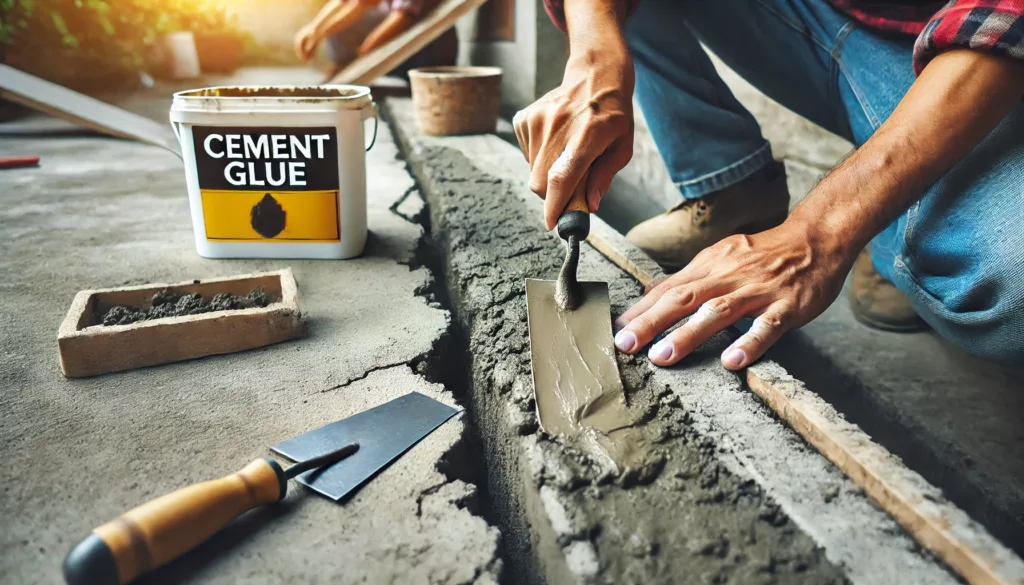
What is Cement Glue?
Cement glue, often referred to as concrete adhesive or masonry glue, is a specialized bonding agent designed to adhere to concrete, stone, and other masonry materials. Its unique formulation ensures a robust bond that can withstand significant stress and environmental conditions. Unlike standard glues, cement glue creates a chemical reaction with the surfaces it binds, resulting in a permanent and durable connection.
How Does Cement Glue Work?
Cement glue operates through a combination of adhesion and cohesion. It chemically reacts with cement-based surfaces to create a molecular bond. The glue penetrates porous materials like concrete, forming a grip that’s nearly impossible to break without damaging the material itself. This makes it ideal for heavy-duty applications where strength and longevity are paramount.
Applications of Cement Glue
Cement glue is a versatile solution that finds its place in numerous industries and DIY tasks. Here’s a breakdown of its most common uses:
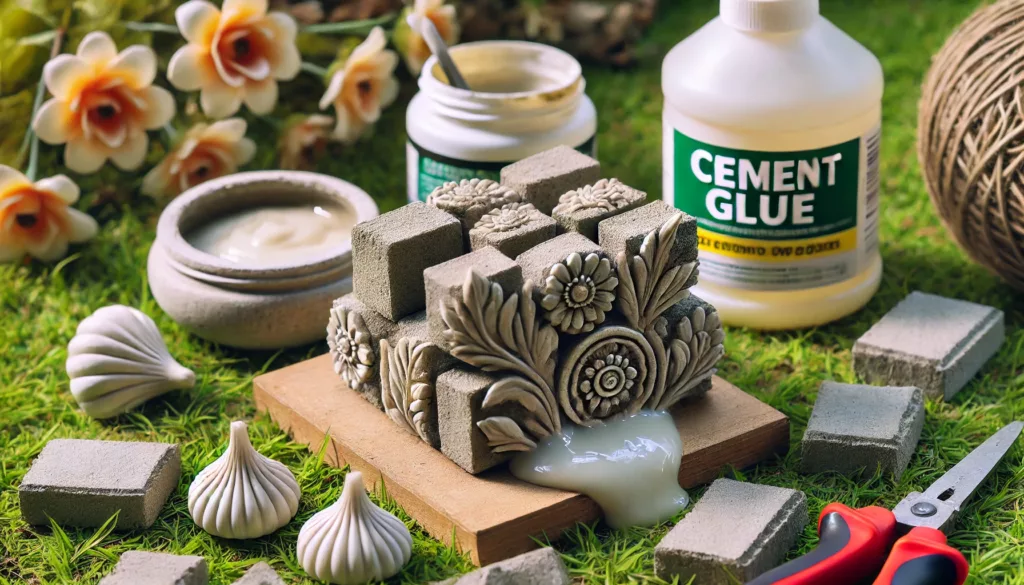
- Repairing Concrete Cracks: Ideal for filling and bonding cracks in walls, floors, and pavements.
- Tile Fixing: Ensures tiles adhere firmly to concrete or stone substrates.
- Outdoor Furniture Repairs: Perfect for mending stone or cement-based garden furniture.
- DIY Projects: A go-to for crafting projects involving masonry or stone elements.
Advantages of Using Cement Glue
Using cement glue offers several benefits that make it stand out in the world of adhesives:
- High Strength: Provides a strong, durable bond.
- Weather Resistance: Withstands extreme temperatures and moisture.
- Ease of Use: Typically comes in easy-to-apply formulations.
- Versatility: Works with a wide range of masonry materials.
Types of Cement Glue
Cement glue comes in different formulations, each tailored for specific needs:
- Epoxy-Based Cement Glue: Known for high strength and chemical resistance.
- Acrylic Cement Adhesive: Offers flexibility and weather resistance.
- Polyurethane Cement Glue: Ideal for heavy-duty outdoor use.
How to Choose the Right Cement Glue
Selecting the appropriate cement glue depends on your specific needs. Consider these factors:
- Material Compatibility: Ensure the glue works with your substrate.
- Environmental Conditions: Opt for weather-resistant glue for outdoor applications.
- Application Type: Choose flexible adhesives for dynamic surfaces.
Step-by-Step Guide to Using Cement Glue
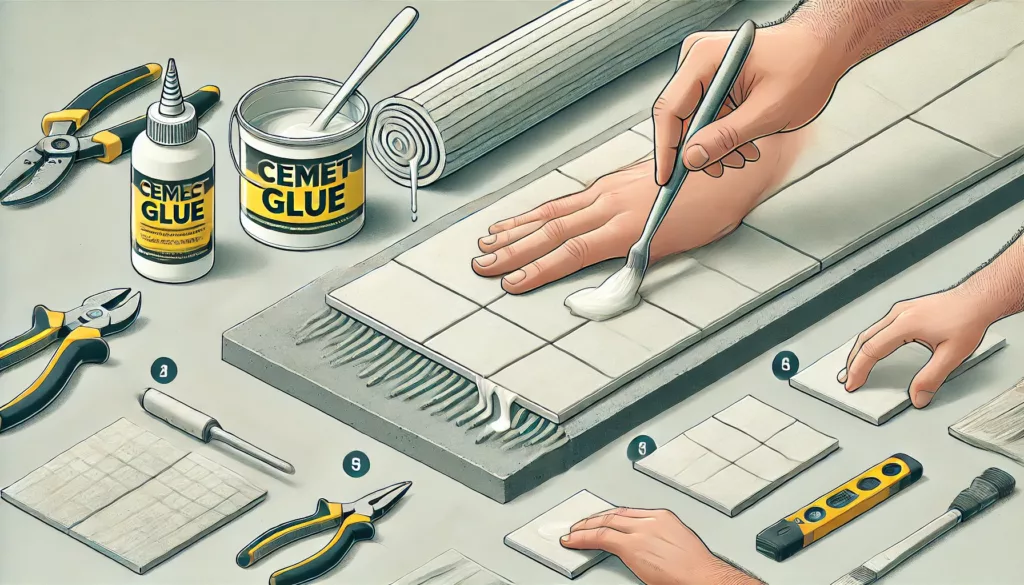
Using cement glue is straightforward when you follow these steps:
- Prepare the Surface: Clean and dry the surfaces to ensure maximum adhesion.
- Apply the Glue: Spread a thin, even layer on one or both surfaces.
- Press and Hold: Join the surfaces firmly and hold until the bond sets.
- Cure Time: Allow sufficient curing time as specified by the manufacturer.
Common Mistakes to Avoid with Cement Glue
- Skipping Surface Preparation: Dirt and moisture can compromise adhesion.
- Using Excess Glue: Too much adhesive can weaken the bond.
- Rushing the Cure Time: Premature stress on the bond can lead to failure.
Cement Glue vs. Traditional Mortar
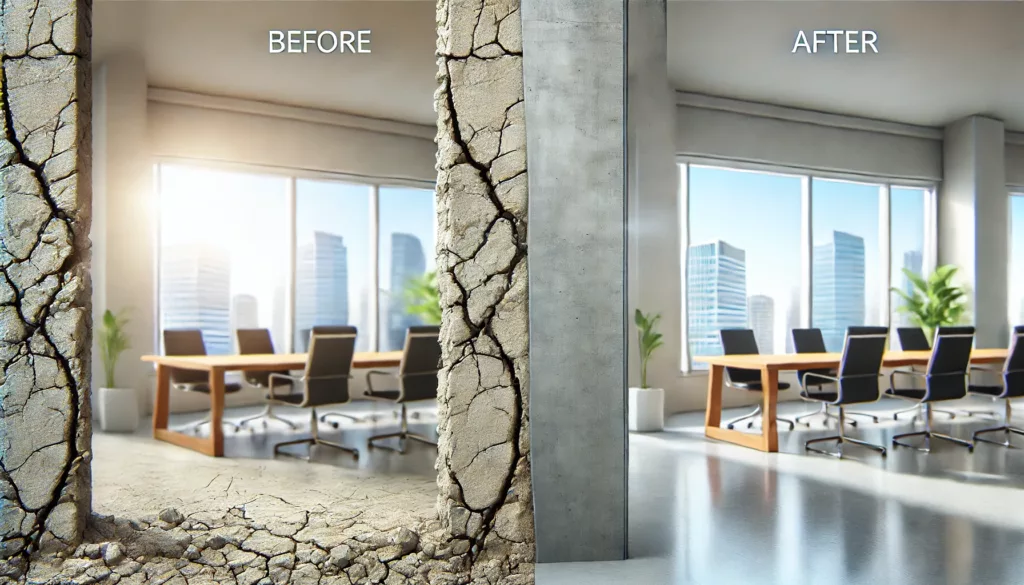
While both cement glue and traditional mortar serve as bonding agents, their applications differ significantly. Cement glue offers faster application and stronger adhesion for small-scale repairs, whereas mortar is better suited for large construction tasks.
Innovative Uses for Cement Glue
Cement glue is not just for repairs. Creative applications include:
- Decorative Stone Art: Bonding small stones for garden ornaments.
- Custom Planters: Building unique cement or stone planters.
- Home Décor: Attaching tiles or stone panels to walls.
FAQs
What surfaces can cement glue bond?
Cement glue can bond a variety of surfaces, including concrete, stone, tiles, and certain metals.
How long does cement glue take to cure?
Curing time varies, typically ranging from 24 to 48 hours for full strength.
Is cement glue waterproof?
Yes, most cement glues are waterproof, making them suitable for outdoor use.
Can cement glue be painted over?
Once cured, cement glue can be painted over to match the surrounding surface.
What’s the shelf life of cement glue?
Unopened cement glue can last up to a year or more when stored properly.
Can I use cement glue for heavy load applications?
Absolutely, cement glue is designed to handle heavy loads and stress.
Conclusion
Cement glue, with its unmatched strength and versatility, is a vital tool for professionals and DIY enthusiasts alike. Whether repairing, building, or creating, this adhesive delivers reliable performance across a range of applications. ZDS™ offers top-quality cement glue products to meet all your bonding needs. With the right product and techniques, cement glue ensures your projects stand the test of time.





